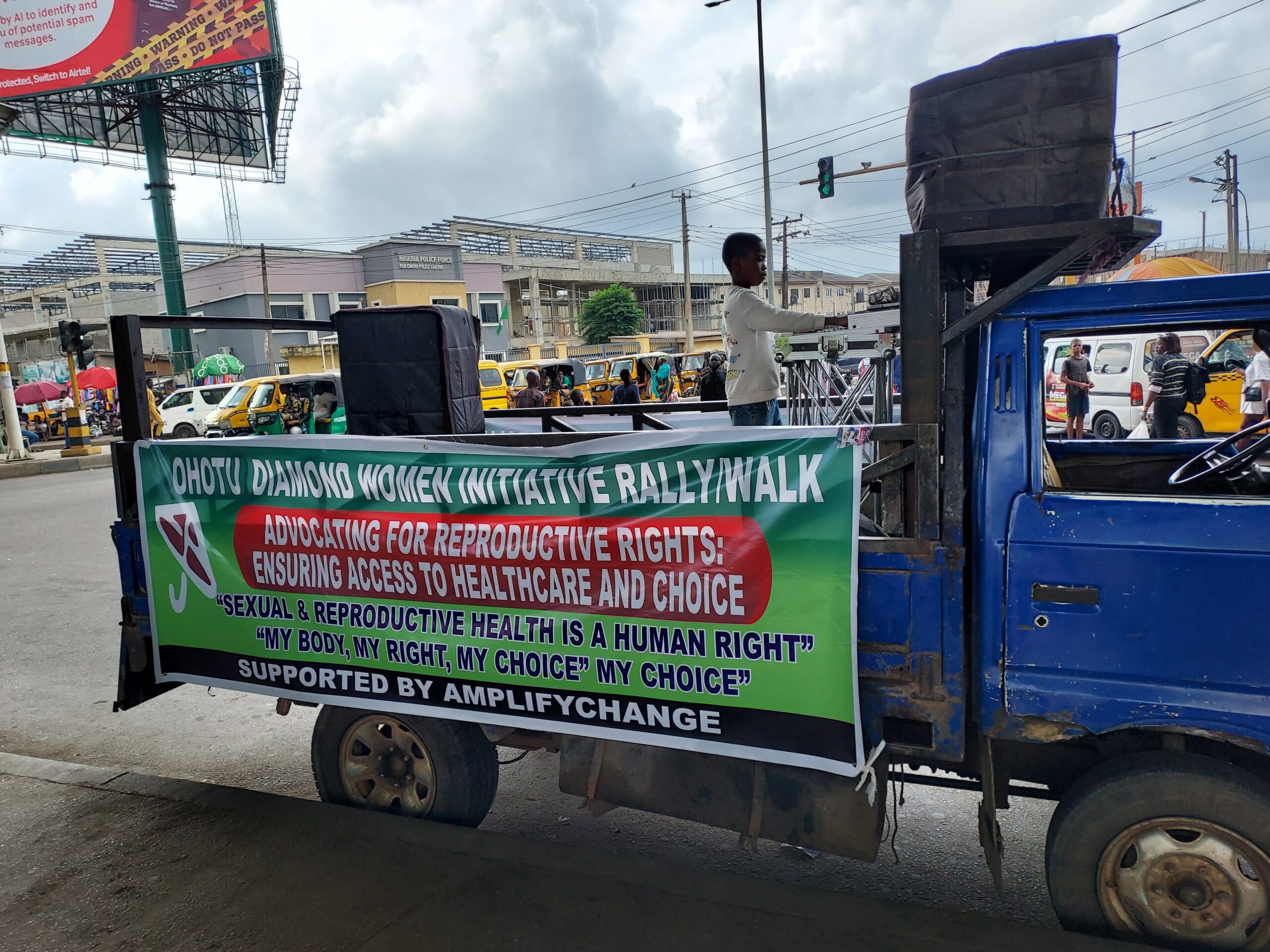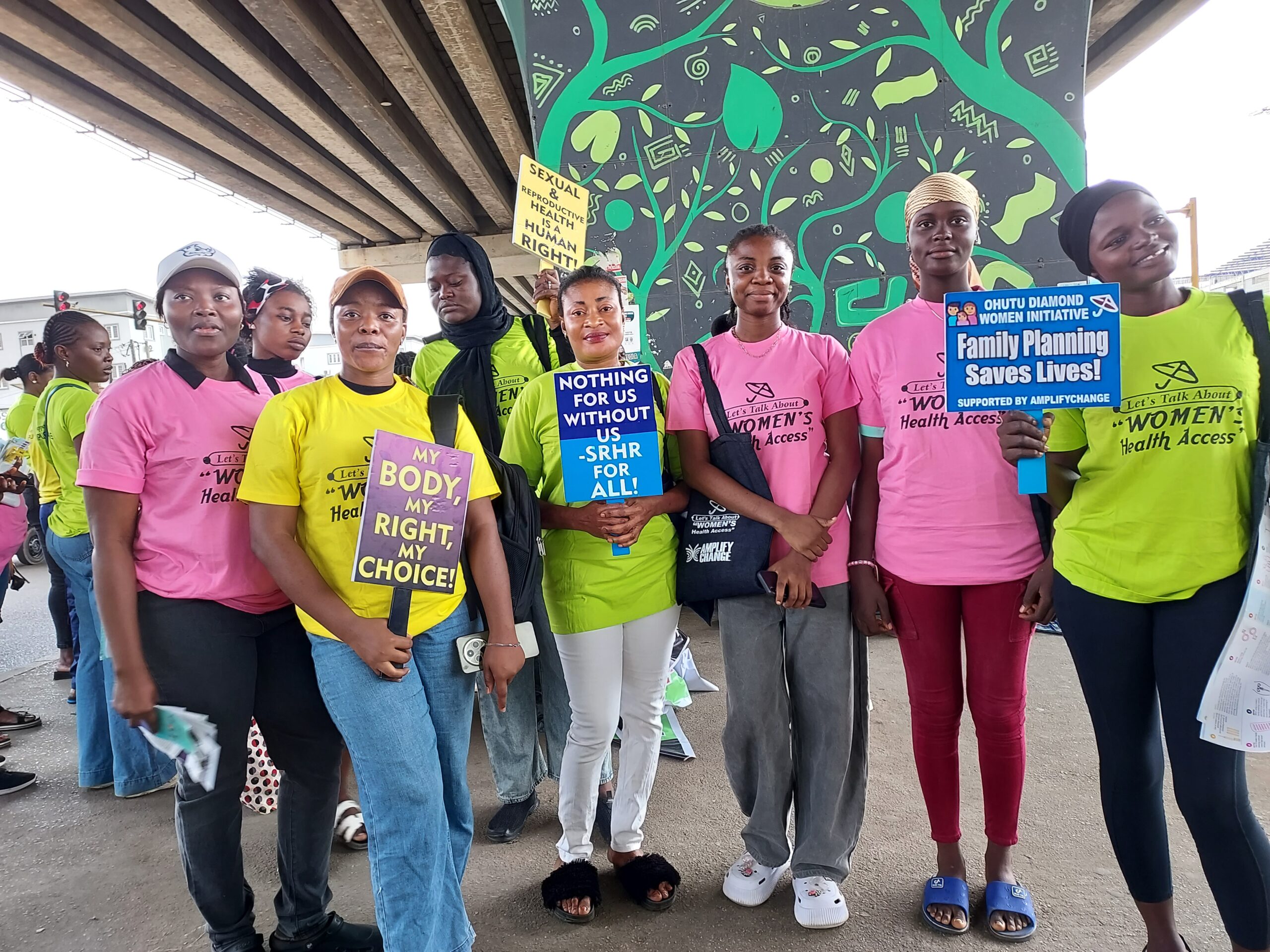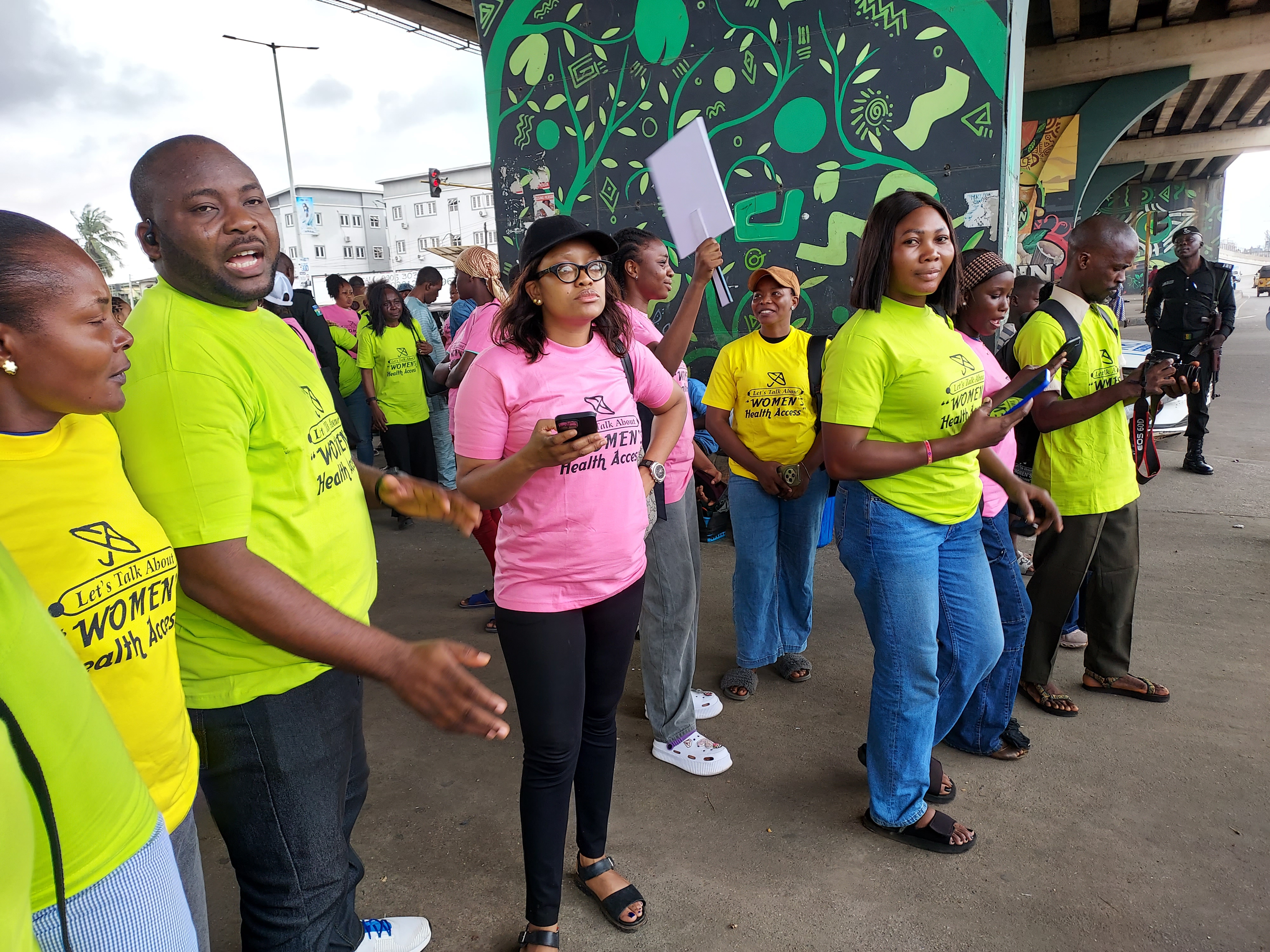Ohotu Diamond Women Initiative leads rally in Agege and Ifako-Ijaiye, calling for safe healthcare, family planning, and women’s reproductive rights.
By Bunmi Yekini

Beneath the busy Agege bridge, a crowd of women in pink, yellow, and green T-shirts gathered as members of the Ohotu Diamond Women Initiative (ODWI) and their partners geared up to embarked on a sensitization walk to demand better access to family planning and reproductive healthcare.
With placards bearing bold inscriptions such as “Sexual & Reproductive Health is a Human Right”, “My Body, My Choice” and “Family Planning Saves Lives” the women danced through the streets to the sound of the DJ beats, ending their rally at Ifako-Ijaiye Local Government Area.
“This project is advocating that female sex workers should not be doing unsafe abortion,” said Dr. Margaret Onah-Nnang, project coordinator for ODWI. “We know the community of female sex workers, their work is sex. And so abortion is common. We don’t want it to be done in an unsafe way. That’s why we empower and educate them on safe practices, condom use, and where to access services. We don’t want them to endanger their lives.”
Founded 15 years ago as a sex worker-led organization, ODWI has worked across 20 local government areas in Lagos with support from *Amplify Change*. Its campaign in Agege and Ifako-Ijaiye targets brothels and communities where, according to Onah-Nnang, the risks of unsafe sex, HIV transmission, and unsafe abortion remain high.

She explained that HIV prevalence in Nigeria is not only a sex worker’s burden.
“The majority of new infections come from pregnant, married women in antenatal clinics. Where are they getting it? From their husbands, who often bring it home after visiting brothels. So we are saying: no condom, no sex. Every act must be protected.”
The rally drew support from other organizations, including AmplifyChange and The Challenge Initiative (TCI).
“Family planning is about child spacing, and it is central to reproductive health,” noted Titilola Sherif, TCI’s demand generation technical support lead. “We have injectables, pills, IUDs, and other methods. Women should have access and, importantly, the freedom to make their own choices.”
For community ambassadors, the campaign is deeply personal. Calisa Amadi, representing Ifako-Ijaiye, described the walk as a chance to bring critical knowledge closer to women who often have no guidance.
“The importance of this project is to let our women know how to manage their reproductive health rights, how to space births, and how to make informed decisions,” she said.
Her colleague in Agege, Moshood Afusat, added that economic realities make family planning even more urgent:
“Most women don’t know their rights. Some attempt unsafe abortions on their own, risking death and bleeding. The economy is not smiling, the number of children is rising, and families are struggling. That’s why we are here, to let both men and women know that family planning protects everyone.”

For ODWI’s Executive Director, Imabong Abraham, the message is simple: women must be empowered to stand by their choices.
“Your husband can ask you to give him three or even a million children, but you as a woman—you wear the shoes, you know where it pinches. My body is my right, my thinking is my right, everything I do is my right. We want women to know they don’t need to risk their lives with unsafe practices. They can go to health centers and get proper care.”
Why It Matters
Unsafe abortion remains one of the leading causes of maternal deaths in Nigeria, despite being preventable through access to safe healthcare, family planning services, and accurate information. The ODWI rally highlighted four key principles:
The right to make decisions about one’s own body.
The right to safe and affordable healthcare.
The right to family planning and contraceptives.
The right to live free from stigma and unsafe practices.
A Call for Action
The women called on government and stakeholders to ensure that family planning services are accessible in every community, unsafe abortions are reduced, and women’s rights are respected.
As their placards boldly declared, the message resonated: “Nothing for us without us. SRHR for all.”
